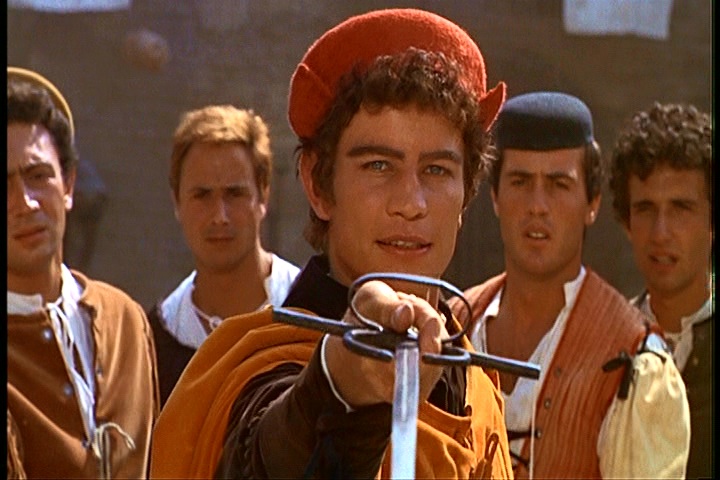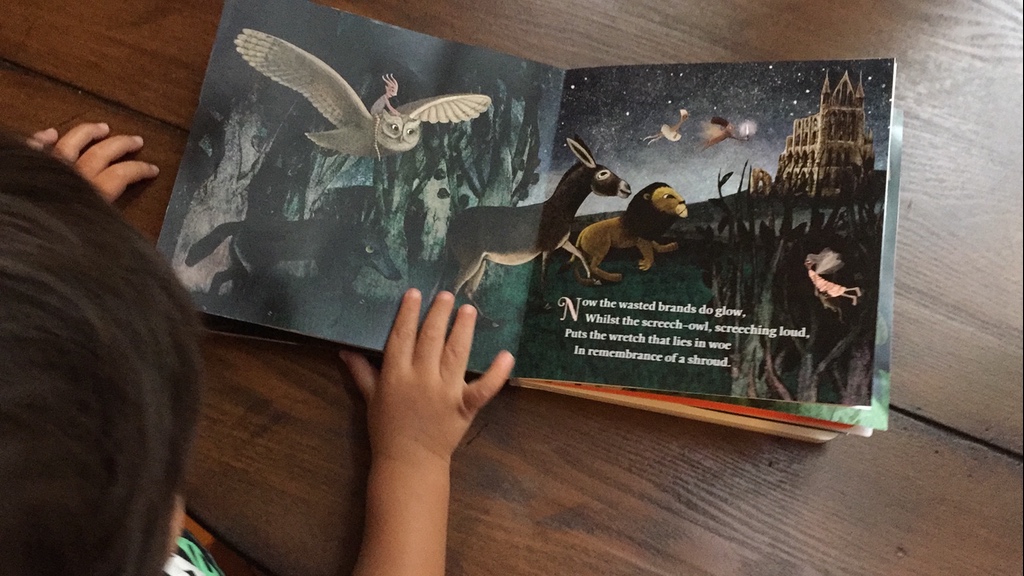I can’t believe it’s taken this long, but this week my oldest is finally seeing an actual live Shakespeare production as part of her studies (i.e. not because I made it happen). The production in this case is Romeo and Juliet (why is it always Romeo and Juliet?) and I’ve already told her that my assumption is she already knows mo re about the play going in than anybody else in her class.
re about the play going in than anybody else in her class.
Since she’s already seen and read the play on her own, plot and character and all that stuff are out of the way (as has always been the plan). So what I’d like to do is give her some suggestions to watch out for that will make this particular interpretation different. In other words, it’s a great opportunity to discuss how everybody gets the same script, but every production is different.
What do you suggest? For instance, I’m a big fan of watching the minor characters. I think they can really fill out the play when you give them a chance. How’s Friar Laurence? Is he just an incompetent adult, or should we see him as more of a villain who brings about all the tragedy because he is overly zealous in his desire to be the one who ends the feud?
Similarly consider Lord Capulet. Which face is the right one? The one that says Juliet must decide for herself to marry Paris? Or the one that says do what I tell you or get out of my house? I’ve always thought of him as a bad guy. But I’ve had people defend him, saying he’s merely a man with a temper who doesn’t mean what he says.
Another question I like to ask is how violent is the conflict between the two families in this version? I don’t like the overly violent interpretation where both sides are always this close to killing each other. I prefer to believe that the grudge is dying out. Both sides now are all talk and bluster but neither is really serious about doing injury to the other. That way, Mercutio’s death is an accident. Even Tybalt is surprised – which makes Romeo’s revenge darker because while Tybalt accidentally killed Mercutio, Romeo deliberately killed Tybalt.
See what I’m talking about? When you see Romeo and Juliet for the umpteenth time, what are you paying close attention to?

